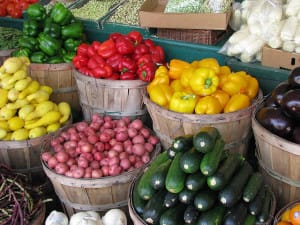Rodale’s Organic Life
by Eesther Crain
Share this with friends and family that are still on the fence.
 |
Ever since the USDA Organic label began showing up on some food labels in the early 2000s, a debate has raged over whether crops grown without chemical additives and fertilizers rack up more nutrition than their conventional counterparts. Now, a new review of 343 previous studies throws its support behind the pro-organic side. Researchers writing in the British Journal of Nutrition found that organic crops and products made with them (such as cereal) pack 17 percent more antioxidants on average—with levels of some subtypes of antioxidants as much as 69 percent higher. The research team also reported four times more pesticide residue on non-organic foods, as well as significantly lower amounts of some toxic metals in the organic-grown items.
Sounds like the debate is settled then—consuming foods certified organic is the way to go. Not so fast. The researchers cite previous studies showing that antioxidants are linked to a reduced risk of heart disease, cancer, and other chronic conditions, yet they’re stopping short of advising that consumers make a permanent switch to the organic aisle. “This study demonstrates that choosing food produced according to organic standards can lead to increased intake of nutritionally desirable antioxidants and reduced exposure to toxic heavy metals,” wrote lead author Carlo Leifert, a professor at Newcastle University in England. “This constitutes an important addition to the information currently available to consumers, which until now has been confusing and in many cases is conflicting.” Still, the authors add that more research needs to be done on whether the boost in antioxidants translates into better health.
In the meantime, choosing food higher in nutrients and lower in toxic chemicals certainly can’t hurt. For more information on food that’s contaminated with the most pesticides, check out the foods on the latest dirty dozen list.
This article was originally published on Women’s Health.

